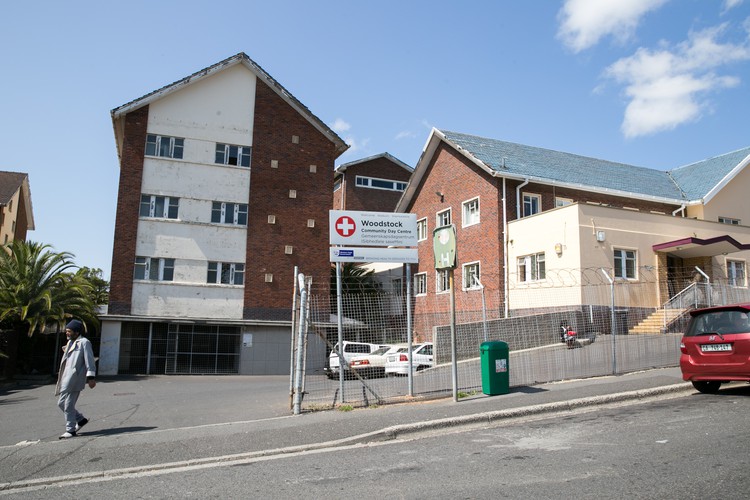
22 August 2024
The old Woodstock Hospital has been occupied since 2017. Archive photo: Ashraf Hendricks
The Council of the City of Cape Town on Thursday decided to go ahead with a public participation process to release the old Woodstock Hospital site (named Cissie Gool House) for the development of affordable housing.
Cissie Gool House is currently home to about 900 people who occupied the former hospital in 2017 as part of the Reclaim the City affordable housing campaign. Over seven years, the building has become a home to its residents. Many ended up living in Cissie Gool House because they were evicted or displaced from their homes in Woodstock due to gentrification.
During the Council meeting, Mayor Geordin Hill-Lewis said the property was “one of the biggest social housing opportunities” in the city and the former hospital would “take its place among the various inner city sites we have already released for social housing”.
“The frustrating fact of this particular property is that social housing would have already been in the construction phase by now, were it not for the major obstacle of the unlawful occupation of the site,” said Hill-Lewis.
“While our social housing goals have been stonewalled and delayed all the way by these challenges, today we take another step forward, by asking Council to approve a public participation process on the City’s intention to release the Woodstock Hospital land for affordable housing development,” said Hill-Lewis.
He said an estimated 500 homes, including both social and affordable housing units, would be made available.
Karen Hendricks, leader of Reclaim the City in Woodstock, who is a resident, said to GroundUp that the Council’s decision came as a “rude surprise”. “Cissie Gool House has provided a safe home and a refuge to almost 1,000 people who could’ve been rendered totally homeless,” she said.
“We didn’t just squat here. We repurposed the space and repaired the space,” said Hendricks. She also said that people who occupied the former Woodstock hospital in 2017 included those who could no longer afford rising rentals and were forced to move out of their homes, or had been evicted, and people from the peripheral areas in the Cape Flats who wanted to live close to the inner City.
The Western Cape High Court previously granted an order that allowed the City to conduct a survey of the residents.
During the council meeting on Thursday, GOOD councillor Axolile Notywala said that they were opposed to “any sale of land in Cape Town that will lead to more homelessness and landlessness”.
He said the mayor was asking councillors to support a recommendation “with no information or care about what will happen to the 864 individuals mentioned in it, who have lived there for seven years”.
“These are 864 human beings. These are mothers, fathers, grandmothers, grandfathers and children who live there. Surely, we must care. These are families,” said Notywala.
In response to this, Mayco Member for Human Settlements Carl Pophaim said: “We have been clear as a city that occupation and invasion is not a metric for qualification for a housing opportunity.” Pophaim added that the City must “do justice” to more than 400,000 people waiting for housing opportunities in other areas in the city. “Does that mean we’re not a caring city to those individuals? Are we not a caring city to other communities within the City of Cape Town?”
He said the City would continue to engage with those living in Cissie Gool House, but would not “be held ransom by anyone in the city for a housing opportunity because they’ve illegally occupied or illegally invaded land.”
He said the City was committed to driving the affordable housing agenda “declining fiscal economy and in face of budget cuts”.